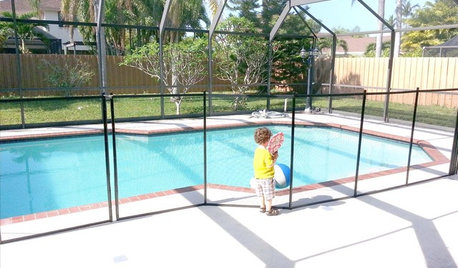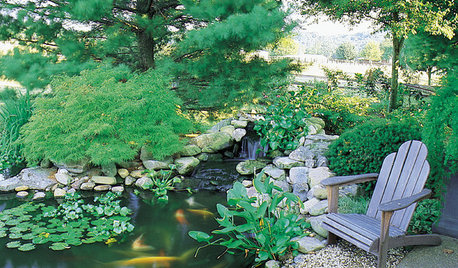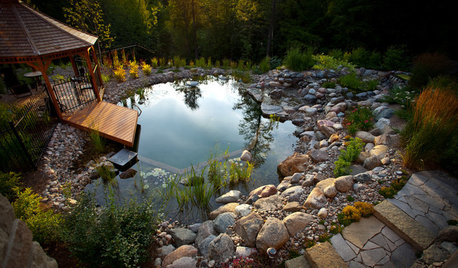Regarding death of Goldfish....
annaca
13 years ago
Related Stories

HEALTHY HOMEThese Steps Will Help Keep Kids Safe Around Pools and Spas
Implement several layers of security to prevent life-threatening accidents in and around the pool
Full Story
HOUSEPLANTS8 Essentials for Healthy Indoor Plants
Houseplants add so much to our homes — and can thrive when grown in the right conditions. Keep these tips in mind
Full Story
KIDS’ SPACES8 Tips for Peaceful Bedroom Sharing With Baby
Enjoy better sleep, neatness and enough space for everyone’s things with these shared-room strategies
Full Story
DECORATING GUIDESDitch the Rules but Keep Some Tools
Be fearless, but follow some basic decorating strategies to achieve the best results
Full Story
HOUSEPLANTS8 Houseplants You Can't Kill
They're forgiving and let you forget. Houseplants don't get any easier than this
Full Story
DECORATING GUIDESRoom of the Day: Warhol Rocks a 19th-Century Dining Room
Stellar modern art brings new energy to a dining room in an 1896 mansion with traditional bones
Full Story
HOUSEKEEPINGHow to Relax and Put Housework in Its Place
If household disarray is making you stressed and unhappy, try approaching it with a different point of view
Full Story
GARDENING AND LANDSCAPINGHow to Make a Pond
You can make an outdoor fish paradise of your own, for less than you might think. But you'll need this expert design wisdom
Full Story
LANDSCAPE DESIGNNatural Swimming Pools: More Beauty, No Chemicals
Keep your skin and the environment healthy with a pool that cleans itself, naturally
Full Story
DENS AND LIBRARIESRoom of the Day: Princess the Snake Reigns in a Luxe Library
Sure, there are books. But in this library the custom snake habitat may be most worth checking out
Full Story






david2006
ccoombs1
Related Professionals
Citrus Heights Landscape Architects & Landscape Designers · Wheeling Landscape Architects & Landscape Designers · Matthews Landscape Contractors · Arlington Landscape Contractors · Corona Landscape Contractors · Golden Gate Landscape Contractors · Hampton Bays Landscape Contractors · Morrisville Landscape Contractors · Painesville Landscape Contractors · Pompton Lakes Landscape Contractors · Waltham Landscape Contractors · Wells Landscape Contractors · New Carrollton Landscape Contractors · Hueytown Landscape Contractors · Clearfield Landscape Contractorsbrownthumbia
woeisme
annacaOriginal Author
annacaOriginal Author
woeisme
woeisme
diggery
woeisme
cweathersby
woeisme
krnuttle
woeisme
diggery
sleeplessinftwayne
hosenemesis
sleeplessinftwayne
woeisme
annacaOriginal Author
woeisme
cweathersby
annacaOriginal Author
woeisme